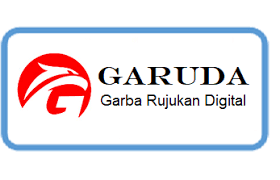MEMBANGUN PENGALAMAN BELAJAR YANG MENYENANGKAN: OPTIMALISASI FAKTOR-FAKTOR PENENTU KEPUASAN PESERTA PELATIHAN
DOI:
https://doi.org/10.35446/diklatreview.v8i3.1898Keywords:
Keywords: Training evaluation, quality of training services, participant satisfactionAbstract
Abstract: This study aims to evaluate and analyze factors and aspects that influence participants' satisfaction in a training that equipped with LMS. As an effort to build fun learning, the study identifies the supporting aspects in training that need to be improved to enhance the quality and service of training. The research classifies as a quantitative research where the data collection was carried out using an online questionnaire that was distributed to all participants in the statistical and data analysis training. Data processing was carried out using SPSS 26 and the results were analyzed with descriptive analysis and inferential analysis using multiple regression methods and factor analysis (with varimax rotation). The results of the study shows that overall participants were satisfied with the training services. The Ease of Access and Navigation aspect in the LMS is considered as the best performance aspects among other aspects. Meanwhile, the regression analysis shows that Learning Media and LMS Visual Design aspect has a significant effect on participant’s satisfaction, while Training Materials and Ease of Access to LMS aspect does not give any notable effect. The results indicate that participants would more appreciate an interactive learning methods and attractive visual designs in a training. Several efforts on improvement that necessary in order to enhance the performance and quality of the training services in the future are providing a more flexible and segmented curriculum, developing various learning media, and improving the LMS visual design for better participant’s understanding and learning experience.
References
Akhmadi, A. (2021). Implementation Of Blended Learning in Training. Jurnal Diklat Keagaman, 15(1), 78–87.
Ananda, Y. F., Flora, E. F. H., Hana, N. N., & Wibawani, S. (2021). Efektivitas Program Pelatihan Berbasis Kompetensi Di Upt Blk Surabaya Dalam Mengurangi Pengangguran. Publica : Jurnal Administrasi Pembangunan Dan Kebijakan Publik, 12(2), 128. https://doi.org/10.33772/publica.v12i2.18133
Andi Rustandi, & Rismayanti. (2021). Penerapan Model ADDIE dalam Pengembangan Media Pembelajaran di SMPN 22 Kota Samarinda. Jurnal Fasilkom, 11(2), 57–60. https://doi.org/10.37859/jf.v11i2.2546
Badan Riset dan Inovasi Nasional. (2021). Peraturan Badan Riset Dan Inovasi Nasional Republik Indonesia Nomor 1 Tahun 2021 Tentang Organisasi Dan Tata Kerja Badan Riset Dan Inovasi Nasional. Brin, 1–127. https://jdih.brin.go.id/peraturan/view/f0fcd23c-ac68-4d08-9411-5e2076cfe913
Choe, R. C., Scuric, Z., Eshkol, E., Cruser, S., Arndt, A., Cox, R., Toma, S. P., Shapiro, C., Levis-fitzgerald, M., Barnes, G., & Crosbie, R. H. (2019). Student Satisfaction and Learning Outcomes in Asynchronous Online Lecture Videos. 1–14. https://doi.org/10.1187/cbe.18-08-0171
Fadila Juliana Rahman, A., & Kamaliah, N. (2022). Adaptasi Model Pembelajaran 70 20 10 pada Agenda 1, 2, dan 3 Pelatihan Dasar Calon Pegawai Negeri Sipil. Diklat Review: Jurnal Manajemen Pendidikan Dan Pelatihan, Vol. 7, No(8). https://doi.org/https://doi.org/10.35446/diklatreview.v7i3.1548
Hariyanto, D., Triyono, M. B., & Köhler, T. (2020). Usability evaluation of personalized adaptive e-learning system using USE questionnaire. Knowledge Management and E-Learning, 12(1), 85–105. https://doi.org/10.34105/j.kmel.2020.12.005
Ikhsania Putri, Z., & Sukmana, C. (2023). Evaluasi Program Pelatihan Fungsional Dasar bagi Penyuluh Keluarga Berencana di BKKBN Provinsi Jawa Barat. Lifelong Education Journal, 3(1), 6–16. https://doi.org/10.59935/lej.v3i1.157
Indahwati, N., Maksum, A., Wicahyani, S., Ristanto, K. O., & Prakoso, B. B. (2023). Persepsi guru terhadap kurikulum merdeka belajar: Analisis dari segi pengetahuan dan keyakinan. Multilateral : Jurnal Pendidikan Jasmani Dan Olahraga, 22(2), 144. https://doi.org/10.20527/multilateral.v22i2.15802
Iskandar, R., & F, F. (2020). Implementasi Model ASSURE untuk Mengembangkan Desain Pembelajaran di Sekolah Dasar. Jurnal Basicedu, 4(4), 1052–1065. https://doi.org/10.31004/basicedu.v4i4.468
Kamaliah, N., Fadila, A., Rahman, J., Puspitasari, D., & Rahayu, D. I. (2024). Coaching Collaboration : Training Strategy for Improving the Quality of Scientific Writing. 5(2), 252–260. https://doi.org/10.46843/jiecr.v5i2.1407
Kamaliah, N., & Juliana Rahman, A. F. (2021). Pengaruh Gaya Belajar dan Metode Pembelajaran terhadap Hasil Belajar Peserta Pelatihan Fungsional Peneliti. Andragogi: Jurnal Diklat Teknis Pendidikan Dan Keagamaan, 9(2), 200–208. https://doi.org/10.36052/andragogi.v9i2.247
Kamaliah, N., Muhajarah, K., Fadila, A., Rahman, J., & Agency, I. (2023). Increasing Changes to the Training Curriculum on Data Processing and Analysis Practices for Scientific Writing Training Participants. 6(3), 315–323.
Lund, A. M. (2001). Measuring usability with the USE questionnaire. Usability and User Experience, 8(2).
Megayanti, W. (2022). Efektivitas Manajemen Pembelajaran Online melalui Learning Management System (LMS) berbasis Moodle. Intelektium, 3(1), 72–78. https://doi.org/10.37010/int.v3i1.717
Muhammad Aldi Dwi Ananda, & Maulidyah Amalina Rizqi. (2023). Pengembangan Kompetensi Karyawan Pada Pt. X. Digital Bisnis: Jurnal Publikasi Ilmu Manajemen Dan E-Commerce, 2(1), 50–72. https://doi.org/10.30640/digital.v2i1.642
Padilah, T. N., & Adam, R. I. (2019). Analisis Regresi Linier Berganda Dalam Estimasi Produktivitas Tanaman Padi Di Kabupaten Karawang. FIBONACCI: Jurnal Pendidikan Matematika Dan Matematika, 5(2), 117. https://doi.org/10.24853/fbc.5.2.117-128
Pradana, A., & Widiastomo, A. (2023). Pengembangan Program Pelatihan Keterampilan Digital bagi Lansia dalam Menghadapi Era Digitalisasi. MUJAHADA: Jurnal Pengabdian Masyarakat, 1(I), 33–42. https://doi.org/10.54396/mjd.v1ii.966
Rosana, R. (2021). Penerapan Metode Pembelajaran Diskusi Dalam Pelatihan Untuk Peningkatan Building Learning Commitment. Tarbiyah Islamiyah: Jurnal Ilmiah Pendidikan Agama Islam, 11(2), 21–30. https://doi.org/10.18592/jtipai.v11i2.5067
Tullis, T., & Albert, W. (2008). Measuring the User Experience: Collecting, Analyzing, and Presenting Usability Metrics: Second Edition. In Measuring the User Experience: Collecting, Analyzing, and Presenting Usability Metrics: Second Edition.
Windhy, A., & Naibaho, T. (2022). Evaluasi Efektivitas Pelatihan Tematik Padi Lahan Rawa dengan Metode Kirkpatrick Pembelajaran. Jurnal Ekonomi Pertanian Dan Agribisnis, 6(1), 1–8.
Published
Versions
- 2025-01-01 (3)
- 2025-01-01 (2)
- 2025-01-01 (1)





